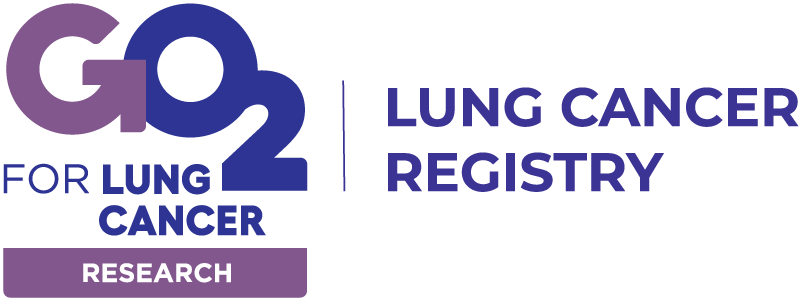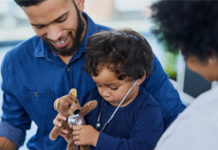The role of the caregiver is multi-faceted as they provide family members, friends and partners with the physical care and emotional support needed during treatments and beyond. This role is critical as they are often the patient’s lifeline, and they act as an advocate for the patient with the medical staff providing the treatments. Yet, there is one important facet of the caregiver relationship that is often overlooked—that of the advocate for the development of new cancer treatments and research.
Patient advocacy organizations have a responsibility to not only support patients, but also support their caregivers who often face physical, mental and professional burdens as these diseases impact the entire family. These organizations often interact with caregivers on the patient’s behalf, providing educational resources and support to all family members involved in the care process. And it is through these organizations that each of the patient caregivers – whether that be family, friends or professional medical staff – take the active role of being “researchers” and help to better understand the disease’s impact by sharing information about their experience and that of the patient related to therapies, side effects and more. This active participation and sharing insights contribute to the development of new treatments and advancements of existing protocols.

For GO2 for Lung Cancer (GO2), embracing the role of the caregiver by offering support and resources to these individuals as well as patients is a priority. GO2 understands that caregivers serve as a fierce advocate for people with lung cancer who are making care decisions. As such, GO2 has prioritized having caregiver-centric reported outcomes as part of the data collection in our Lung Cancer Registry.
Driving advocacy through data collection
In addition to educational and support roles, many patient advocacy organizations have launched initiatives to gather patient-generated health data and insights including developing registries—databases that collect patient data and anonymize the information, which can then be shared with researchers and healthcare professionals for the development of new treatments and support programs. These platforms collect, curate and share detailed patient experiences for research and analytical uses. This information can be used in a multitude of ways depending on how each organization opts to structure their registry. The real-world data could be used to empower and drive new clinical trials or by sharing insights into what other patients and caregivers are experiencing. In addition, these registries can provide education and potential testing recommendations that complement a patient’s professional care.
Along with collecting patient information from caregivers that can drive treatment and care insights, GO2 has now expanded the Lung Cancer Registry to learn about caregiver needs directly from the source. This will allow the organization to better support everyone affected directly or indirectly by a lung cancer diagnosis. It can find the hidden connections by synthesizing the information that was not possible before.
However, these registries, including GO2’s, are only effective when patients and their loved ones respond to surveys and enter in detailed information on their care journeys. Details examining biomarkers, treatments, diagnosis, side effects and overall quality of life are captured through these registries, giving patients and caregivers a direct role in cancer treatment research and informing how therapies are used to treat people who have been diagnosed. Individuals are empowered by the knowledge that their journey may benefit future patients.
The information gathered in registries such as the one provided through GO2’s Lung Cancer Registry allows patients and caregivers to take control of their cancer treatment options in a way that was not possible without the registry. GO2 has experienced LungMATCH treatment and clinical trial navigators who can speak with registry participants about their treatment decisions, biomarker testing possibilities and more. This sharing of information allows anyone affected to find needed support, inform new treatment protocols, and can enhance interactions with healthcare professionals. The registry gives those individuals most impacted a voice.
The Lung Cancer Registry, built on the IQVIA Health Data Platform Connection, is designed specifically to address the needs of their community as it grows over time, offering engagement through surveys and other interactions to meet the goals of education and support. The Lung Cancer Registry makes it simple for patients and caregivers to share data, complete consent forms and search for resources. It is meant to measure the health status for people with lung cancer now and well into the future to inform best practices in cancer diagnosis and care.
Bringing the caregiver into the spotlight
The caregiver’s experience throughout the patient journey is as important as the patient’s experience. These individuals have unique insights into the day-to-day challenges of cancer diagnosis and treatment. Importantly, they may also experience their own challenges in providing care for a loved one. GO2 is undertaking a specific research project to better understand the caregiver experience to build out further support for our network of caregivers.
Patient advocacy organizations must keep the patient and caregiver in mind as they seek to educate, support and elevate research opportunities in the search for high quality care. These organizations play an invaluable role through complementing the holistic care experience. They offer healthcare practitioners valuable data insights into the development of the disease and treatment impacts, while supporting the patient and caregivers through educational and community resources. In working with caregivers directly, GO2 is demonstrating that everyone impacted by cancer has an important story. Thus, a full focus on caregiver support and empowerment through an active role in data registries and research helps to bring these individuals into the spotlight where their voice can be heard and influence the future of cancer care.
About the Authors
Jennifer C. King, PhD, Chief Scientific Officer, GO2 for Lung Cancer
Jennifer C. King, PhD is the Chief Scientific Officer at GO2 for Lung Cancer where she leads research studies and strategic initiatives to increase lung cancer survivorship. She is a thought leader and accomplished executive with extensive experience collaborating with diverse stakeholders across oncology, precision medicine, information technology, and advocacy to improve health outcomes.
As a translational oncology researcher, Dr. King studied new molecular targets for cancer therapeutics while working at Memorial Sloan-Kettering Cancer Center and the Jonsson Comprehensive Cancer Center at UCLA. She has overseen research programs and portfolios at the American Society of Clinical Oncology, led data governance for real-world evidence utilization via new health information technology for CancerLinQ, co-founded a patient-facing health data sharing nonprofit, SHARE For Cures, and founded a learning disabilities organization, Dysgraphia Life.
Dr. King serves on multiple advisory boards and workgroups for national and global organizations including American Society of Clinical Oncology, Association of Community Cancer Centers, International Association of the Study of Lung Cancer, Springer Nature, and the World Economic Forum as well as for pharmaceutical and diagnostics companies. Dr. King received a PhD in Biology from the Massachusetts Institute of Technology and a BS from Duke University.
Alexandra Weiss, Director of Nonprofit Strategy, Patient Advocacy
Alexandra Weiss is a Director of Nonprofit Strategy within the Healthcare Solutions team at IQVIA, focusing on patient advocacy-led health data and registry initiatives. Alex directs partnership engagements with patient organizations to create and deliver comprehensive, tailored data solutions and long-term strategies to meet organizational missions of improving health care and patient outcomes. She plays a key role in the development of patient- and advocacy-centric thought leadership on numerous topics that address building organizational health data and research infrastructure strategy.
Alex has extensive background in patient advocacy and is a patient and caregiver advocate herself. She leverages her insights and knowledge to strategize and implement solutions for clients, enabling mission-driven capabilities through advocacy-led health data and research initiatives.
Prior to joining the IQVIA team, she spent over six years leading life science industry relations and engagement for an oncology patient advocacy organization. During that time, she worked closely on the organization’s Scientific & Medical Initiatives, raised significant funds to drive progress, and represented the patient voice for industry hosted initiatives.





